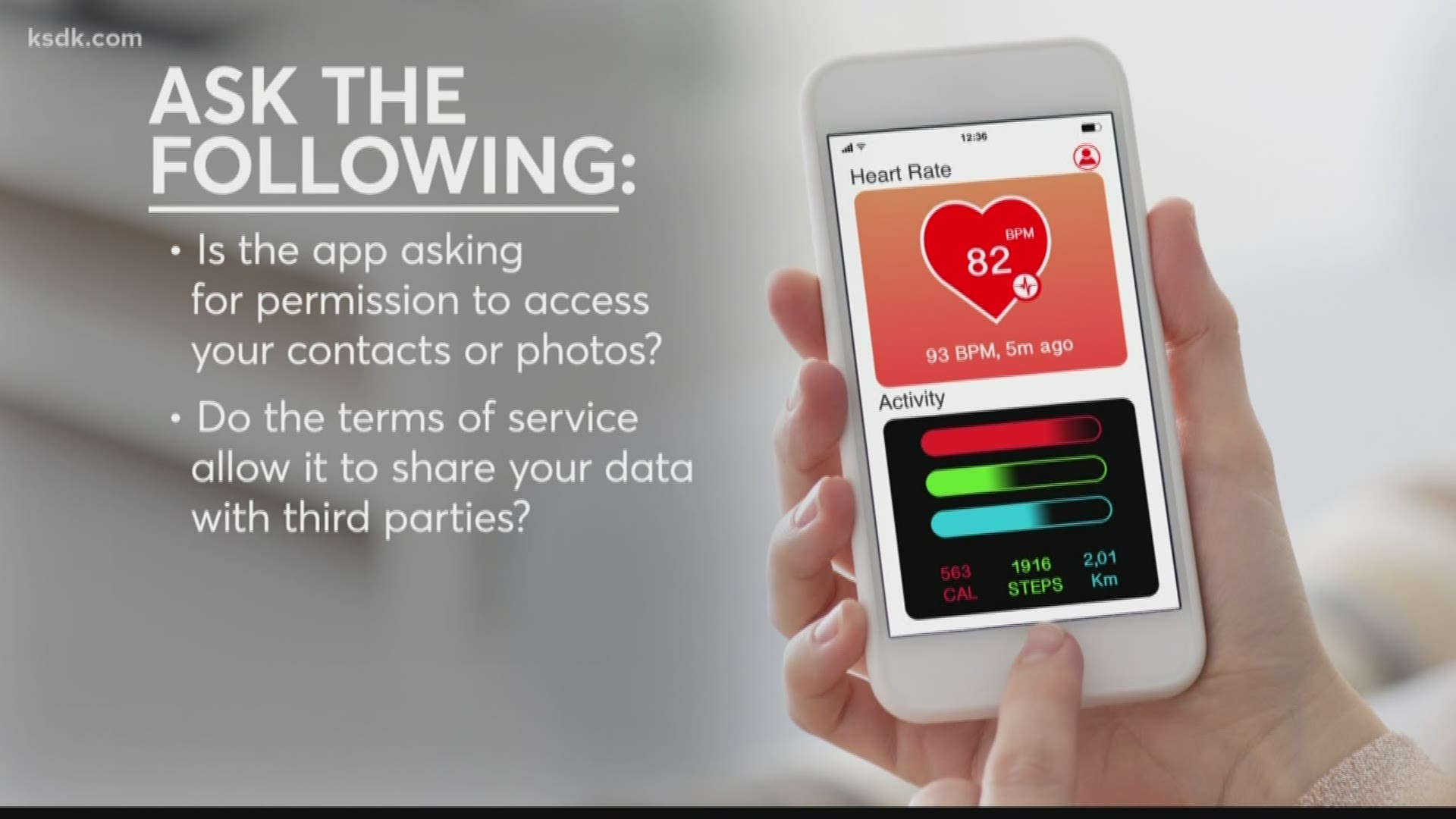ST. LOUIS — Relying on smartphone apps for health-related concerns is almost a matter of course these days, from step trackers to weight-loss programs, even those that help you remember to take your medication. But how do you know whether your privacy is protected? Consumer Reports explains what to look for to safeguard your personal information.
By law, doctors and hospitals have to protect your information and keep it private. But the same rules don’t necessarily apply to health apps.
Consumer Reports said it’s a good idea to ask the following: Is the app asking for permission to access your contacts or photos? Do the terms of service allow it to share your data with third parties?
If the answer to those questions is yes, CR recommends taking a closer look before deciding whether to hand over your data. If it gets out there, it could affect whether you can get insurance, or how much you’ll pay for it. It might even lead to employment discrimination.
And be careful with free apps, because they probably sell personal data. It’s a way for them to make money.
More Consumer Reports stories:
RELATED: Consumer Reports: Danger at the Deli


